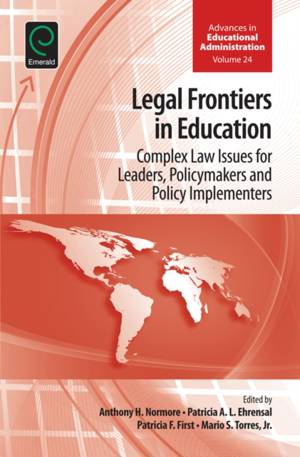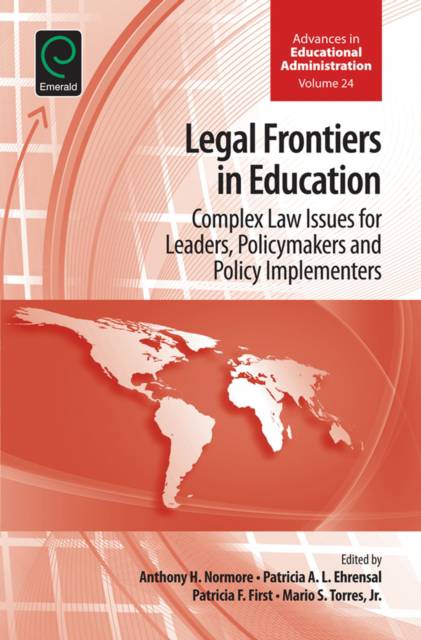
- Afhalen na 1 uur in een winkel met voorraad
- Gratis thuislevering in België vanaf € 30
- Ruim aanbod met 7 miljoen producten
- Afhalen na 1 uur in een winkel met voorraad
- Gratis thuislevering in België vanaf € 30
- Ruim aanbod met 7 miljoen producten
Zoeken
Legal Frontiers in Education
Complex Law Issues for Leaders, Policymakers and Policy Implementers
€ 275,45
+ 550 punten
Omschrijving
This book examines issues in educational law and the way leaders, policymakers and policy implementers influence just processes and outcomes in schools. From the lens of professors, attorneys and administrators we explore how lessons learned from the authors' experiences and research might improve the preparation and practice of educational leaders. We examine how leaders can and should be conceived as advocates for justice, especially those with positional power and formal influence. Educational law has both conceptual and empirical qualities. While research on justice often begins with abstract conceptualizations, it is also manifest as tangible and observable activities and behaviours. Thus it follows that law can be studied through a variety of methodological approaches. Depending on the epistemological and/or methodological orientation of a study, justice may be a measurable or observed event, a purely theoretical construct, or a combination of both. Leaders must address questions about law and justice. Of equal importance is how to navigate complex legal issues and how to best engage in the decision-making processes while keeping the best interests of students at the fore.
Specificaties
Betrokkenen
- Uitgeverij:
Inhoud
- Aantal bladzijden:
- 320
- Taal:
- Engels
- Reeks:
- Reeksnummer:
- nr. 24
Eigenschappen
- Productcode (EAN):
- 9781785605772
- Verschijningsdatum:
- 25/11/2015
- Uitvoering:
- Hardcover
- Formaat:
- Genaaid
- Afmetingen:
- 155 mm x 231 mm
- Gewicht:
- 635 g

Alleen bij Standaard Boekhandel
+ 550 punten op je klantenkaart van Standaard Boekhandel
Beoordelingen
We publiceren alleen reviews die voldoen aan de voorwaarden voor reviews. Bekijk onze voorwaarden voor reviews.










